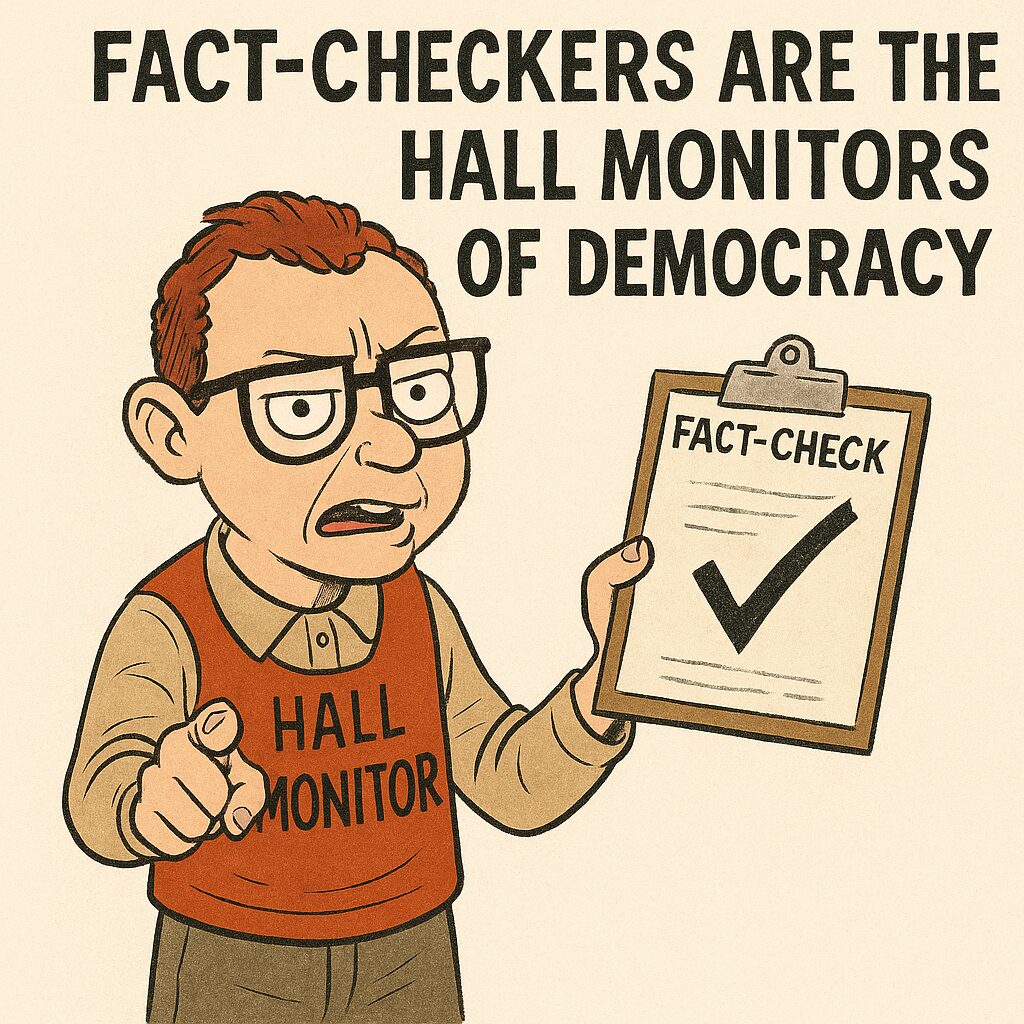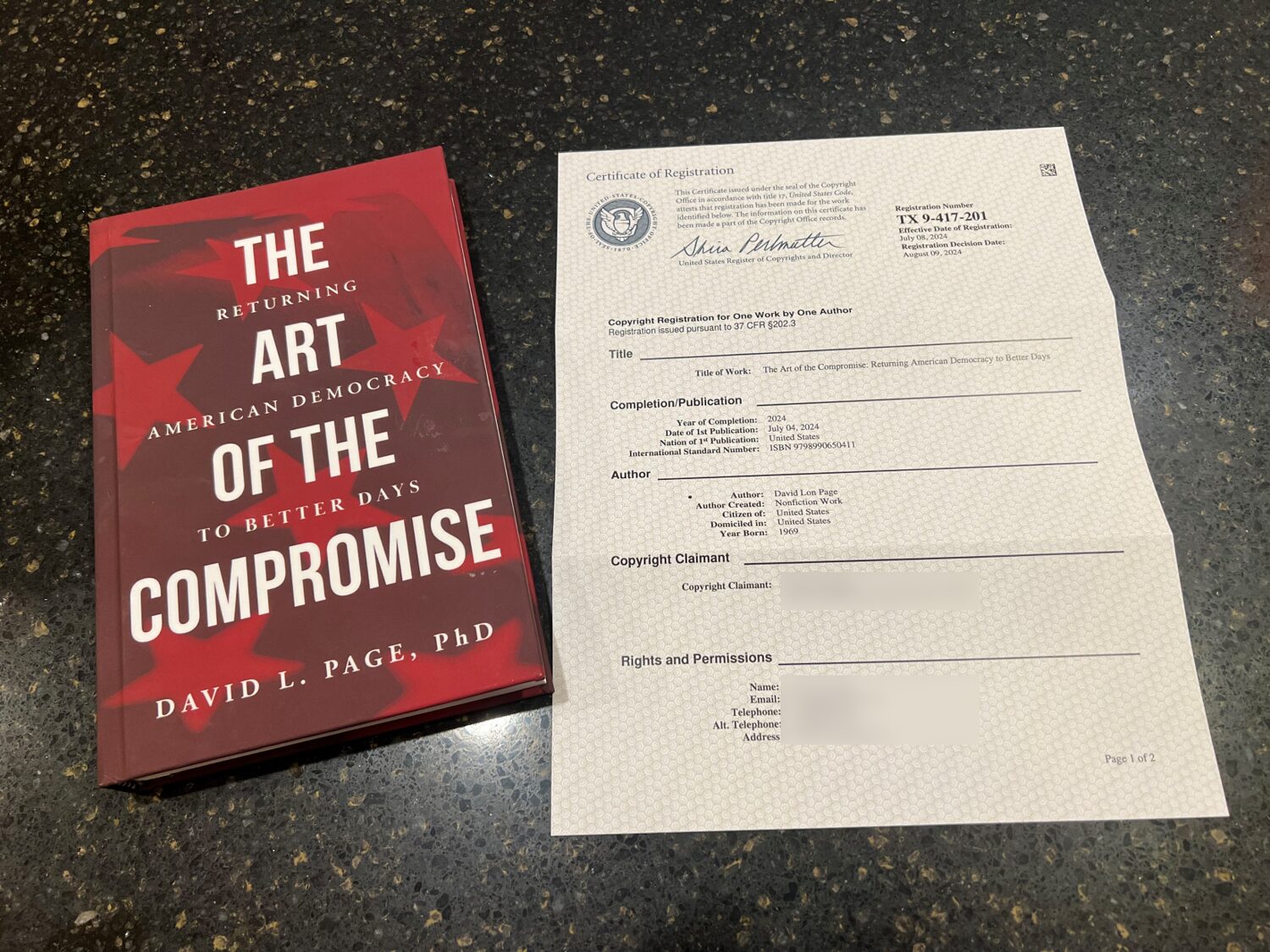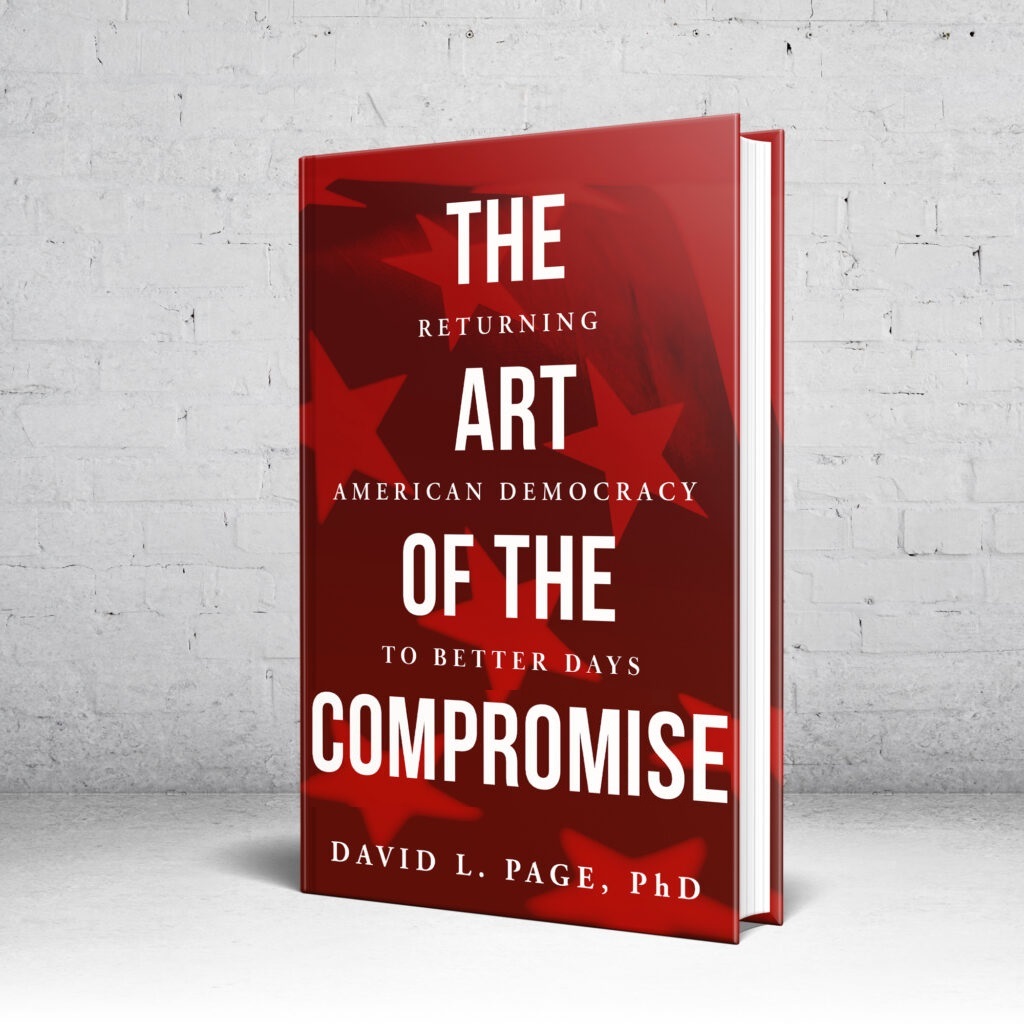(or, Why I Don’t Trust Fact-Checkers)
A certain species of modern hall monitor exist who now patrols the internet instead of the school hallway. Clipboard in hand, whistle at the ready, they call themselves fact-checkers. You can find them lurking beneath headlines, adjudicating memes, and declaring truth with the confidence of a medieval scribe.
I have never liked hall monitors. They are rarely the best students, never the most creative, and almost always convinced that enforcing the rules is the same thing as understanding them. The new digital version is worse—armed not with authority but with search engines. Their job is to Google faster than you can think, paste a citation, and declare victory.
What masquerades as intellectual rigor is, more often than not, algorithmic obedience. These are not scholars of argument. They are bureaucrats of information. Fact-checkers do not out-reason their opponents; they outsource reasoning to hyperlinks. They wield data like a cudgel and confuse retrieval with reflection.
A recent paper from the University of Pennsylvania’s Annenberg Public Policy Center confirms what many of us have suspected: direct correction is often counterproductive. Javier Granados Samayoa and Dolores Albarracín found that bypassing misinformation—introducing a better, truer idea instead of swatting the false one—actually changes minds more effectively than “debunking” it. Their six experiments show that the more we repeat a falsehood to refute it, the more we cement it. Every “Actually…” keeps the lie alive.
Bypassing works because human beings build beliefs the way we build skylines: new structures replace old ones; they do not argue with them. A correction reminds us of the old scaffolding. A new belief quietly renders it obsolete.
This is what fact-checkers never understand. Their entire identity depends on fighting the last battle. They are reactive, not generative—technicians of the obvious, allergic to imagination. The liar creates; the checker annotates. One writes myths; the other scribbles in the margins.
In politics, that imbalance matters. A lie told with conviction outpaces a truth read from a teleprompter. The fact-checker scolds from behind, clutching their clipboard, unaware that the crowd has already moved on.
What Granados and Albarracín describe is not just a new tactic—it is a philosophy of persuasion. If you want to defeat falsehood, stop echoing it. Tell a story people want to believe, grounded in truth but carried by meaning. The antidote to misinformation is not correction—it is creation.
So yes, I still dislike hall monitors. They make small people feel important. The rest of us are better off walking past them and doing real work.
Reference:
Granados Samayoa, J. A., & Albarracín, D. (2024). Bypassing versus correcting misinformation: Efficacy and fundamental processes. Journal of Experimental Psychology: General. https://doi.org/10.1037/xge0001687
Disclaimer:
This essay was written with the occasional assistance of ChatGPT, which—unlike most fact-checkers—actually reads the research before offering opinions.


